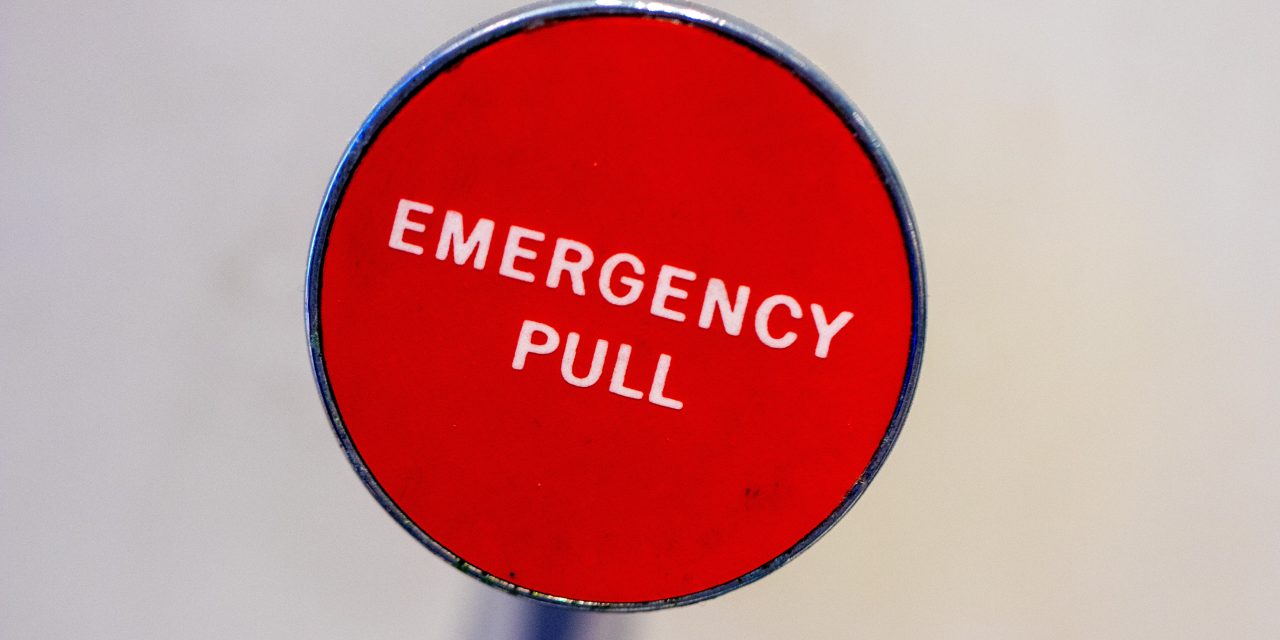One Friday afternoon a couple of weeks before a trip I fell and broke my shoulder and arm. I had blithely parked my car at the shopping center and walked across the parking lot toward Trader Joe’s, where I tripped and fell “splat” on my face on the cement, my arm curled under me to break the fall. The ambulance ride with sirens blazing, the emergency room crew, the whole drama – I look back on it now with amazement.
Then, as I lay there doped up on vicodin, I started thinking, “What if this had happened to me while escorting a tour? Or, what if it had happened to one of my tour members while on my watch? How would I have handled it?
And although I have written on this subject a number of times before, I think it’s worth our taking a second look to be sure we’re prepared for such an eventuality as it really can happen to anyone, anytime, anywhere.
Tour Planners Need to Be Prepared for Emergencies
As a group tour planner, ensuring the safety and well-being of your travelers is paramount. While travel adventures offer unforgettable experiences, unforeseen emergencies can arise at any moment. To navigate such situations successfully, tour planners must be prepared and equipped with the right knowledge and resources. In this article, we will delve into pertinent advice and specific tips that group tour planners need to know about handling emergencies, ensuring a smooth and secure journey for all.
1. Conduct Comprehensive Risk Assessment
Before embarking on any group tour, conduct a thorough risk assessment to identify potential hazards and assess the overall safety of the travel destination. Evaluate factors such as political stability, local weather conditions, health risks, and transportation safety. Understanding the risks beforehand allows you to implement appropriate safety measures and make informed decisions for the well-being of your travelers.
Related: Risk Management 101: Top Tips For Reducing Risk In Your Tour Business (leisuregrouptravel.com)
2. Develop a Detailed Emergency Plan
A well-structured emergency plan is an essential tool in ensuring a swift and organized response to unexpected situations. Your emergency plan should outline clear protocols for various scenarios, such as medical emergencies, natural disasters, or unforeseen political unrest. Ensure that all members of your tour staff are familiar with the plan and know their roles and responsibilities in case of an emergency.
3. Establish Communication Protocols
Effective communication is key during emergencies. Establish reliable communication protocols with your travelers, tour staff, local authorities, and emergency services. Provide your travelers with multiple points of contact, including an emergency hotline and local emergency numbers for the destination they are visiting. Regularly check-in with your group during the trip to stay informed about their well-being.
4. Have Access to Medical Support
Medical emergencies can happen during group tours, and having access to medical support is vital. Partner with local medical facilities or hospitals at your travel destination to ensure immediate medical assistance if needed. Additionally, have a well-stocked first-aid kit on hand during the tour and ensure that your tour staff is trained in basic first-aid procedures.
5. Stay Informed About Travel Warnings and Alerts
Be vigilant about monitoring travel warnings and alerts issued by government agencies. Stay updated on any changes to the security situation, health advisories, or natural disaster warnings in your travel destination. Flexibility is essential in such situations, and having real-time information allows you to make informed decisions about altering travel plans if necessary.
6. Encourage Travel Insurance for All Participants
Encourage all participants to have comprehensive travel insurance that covers medical emergencies, trip cancellations, and travel disruptions. Travel insurance provides financial protection and peace of mind for both the tour planners and the travelers during unforeseen circumstances.
7. Have a Contingency Budget
Emergencies can sometimes lead to unexpected expenses. Having a contingency budget set aside specifically for emergencies allows you to handle unforeseen costs without impacting the overall tour budget. This financial buffer ensures that you can swiftly address urgent situations without any delays.
8. Provide Pre-Departure Safety Briefings
Conduct pre-departure safety briefings for all travelers to familiarize them with safety protocols, local customs, and emergency procedures. Encourage open communication during these briefings and address any concerns or questions your travelers may have. Prepared and informed travelers are more likely to respond effectively during emergencies.
9. Cultivate Relationships with Local Contacts
Build strong relationships with local contacts, such as tour guides, hotel staff, and transportation providers. Local contacts can provide valuable insights and assistance during emergencies, helping you navigate unfamiliar territory more effectively.
10. Stay Calm and Lead by Example
In the event of an emergency, staying calm and composed is essential as a tour planner. Your demeanor and actions set the tone for how your travelers will respond to the situation. Leading by example and demonstrating a proactive approach to handling emergencies can instill confidence and trust in your group.
As a tour planner, being prepared for emergencies is a fundamental responsibility to ensure the safety and well-being of your travelers. By conducting comprehensive risk assessments, developing detailed emergency plans, establishing robust communication protocols, and having access to medical support, you can navigate unforeseen situations with confidence and efficiency. Encourage travel insurance, provide pre-departure safety briefings, and cultivate local contacts to further enhance your emergency preparedness. Remember, your calm and proactive leadership during emergencies will be the guiding light for your group, ensuring a secure and memorable travel experience for all.







